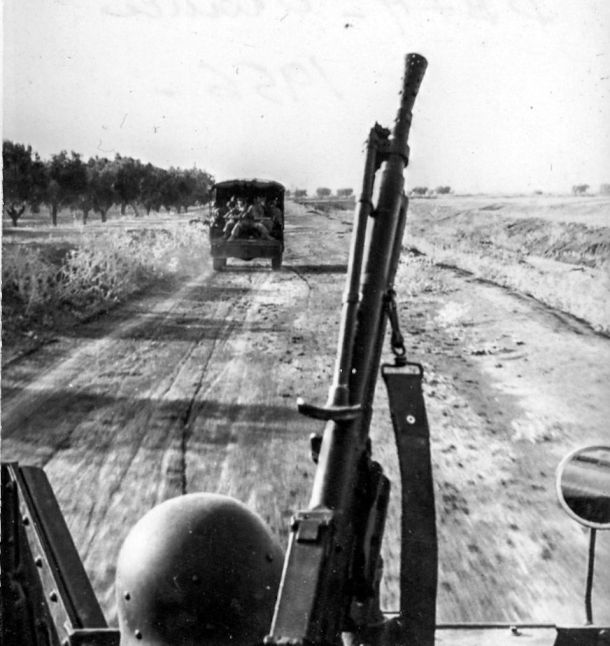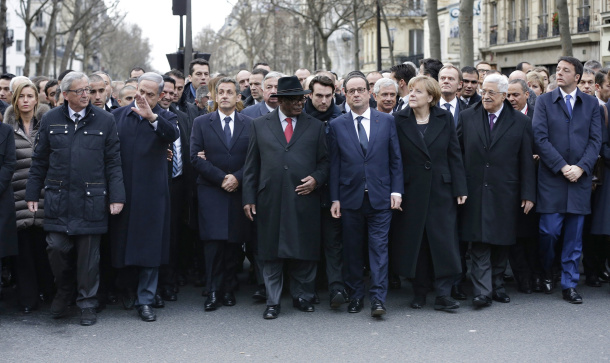By: Robert Andrea

One of the most overlooked aspects in strategic deliberations is that of sequencing. It is much more common for the ‘what’ and the ‘how’ of a policy to receive the lion’s share of analysis. Despite this, the order in which the segments of a strategy are implemented can often be just as important. And while this may not always be the case, the cost of not giving due consideration to sequence can be painfully high. The ongoing Libyan Civil War provides a contemporary case study into how important sequencing can end up being in the pursuit of strategic interests.
Concerning Libya
In the immediate term, Western states appear to see (based on the different types of policy approaches on the table) two broadly defined interests in Libya. One is resolving the civil war that has been ongoing since 2014. The second is counterterrorism, primarily with regard to the increasing presence in Libya of the so-called Islamic State, but also of groups like the AQ-linked Ansar al-Sharia.
In terms of the civil war, the international community (particularly the United States and European Union) is committed to a diplomatic resolution of the conflict via the UN-led peace process. Dealing with the counterterrorism issue, on the other hand, will almost definitely involve a more kinetic approach.
Without the proper sequencing of these respective policies, however, neither issue will be solved effectively. Worse still, the situation on the ground would likely deteriorate significantly if the major actors fail to appreciate this.
Civil war
Following the overthrow of Colonel Muammar al-Qaddafi by NATO-backed rebels in 2011, Libya has struggled to rebuild effective state institutions, culminating in another civil war in 2014. This current conflict has essentially been fought between two rival entities - both claiming to be the legitimate government of Libya – each with their respective loyalists.
On one hand, there is the General National Congress. Often referred to as the Tripoli government or the Libya Dawn Coalition, the General National Congress (GNC) is comprised largely of Islamist militias and political blocs including the Justice and Construction party – considered by some to be the Libyan branch of the Muslim Brotherhood. The GNC and its allied militias are backed by Qatar, Turkey, and Sudan.
The rival of the GNC is the Tobruk-based House of Representatives, alternatively known as the Council of Deputies or the Tobruk government. Comprised of supposedly secular-leaning opponents of the Islamist-dominated GNC, the House of Representatives (HoR) is internationally recognized as the legitimate elected government of Libya. The HoR also maintains the loyalty of General Khalifa Haftar and his loyalists in the Libyan National Army.
In an effort to end hostilities, a U.N.-led diplomatic effort has produced a roadmap towards reconciliation.
In January of this year, a Government of National Accord (GNA) was announced, which, it is hoped, will unite the warring factions. For security reasons, the GNA (led by chairman and prime minister Fayez al-Sarraj) was not able to enter Libya until 30 March of this year, when he landed in Tripoli. In a somewhat surprising move, the Tripoli-based GNC announced shortly thereafter that it would remove itself from power in favor of the U.N.-backed unity government.
As of yet, the HoR has not ratified the agreement, as certain clauses would call for Haftar to step down as their army chief.
New place. Same threat. Same policy.
Taking advantage of the chaos during the civil war, the Islamic State has managed to establish a major foothold in Libya. This presence includes, but is not limited to, control of the coastal city Sirte. Increasingly concerned about these developments, Western states have been mulling more direct military options to combat the growing jihadist threat in Libya.
Earlier this year, a U.S. airstrike against an Islamic State camp in Sabratha, western Libya, killed around 50 people, including Noureddine Chouchane. Chouchane is thought to have been a key player in the two attacks last year targeting a museum and a beach resort in Tunisia. The attacks have been claimed by the Islamic State. However, this was a fairly isolated operation and there has yet to be a sustained Western airstrike programme conducted in Libya.
In terms of ground forces, part of the agreement that led to the GNA includes plans for an Italian-led multinational force of 6,000 troops to be deployed to Libya. It is still unclear what part of that force will be specifically devoted to counterterrorist operations and, for now, it is still a theoretical force. There doesn’t appear to be any reports of conventional Western troops actually in Libya currently, though multiple reports do place U.S., U.K., and French special operations forces in the country.
The foregoing reveals nothing to suggest that the counterterrorism programme in Libya will consist of anything tactically different than the ones implemented (mostly by the United States) in places like Yemen, Syria, or Somalia: Drone/airstrikes as well as occasional direct action raids by special operations forces (SOF). As we have learned time and time again though, airstrikes and SOF operations alone are usually insufficient in countering jihadist insurgencies. In the absence of a sizeable deployment of conventional Western troops, partnership with local ground forces would additionally be required to make these airstrike/SOF programmes effective.
If examined purely at a tactical level, the disparate nature of the two policies (conflict resolution and counterterrorism) would theoretically allow them to be pursued concurrently. That would be a very serious mistake - doing so would essentially ignore sequencing considerations and would likely end in catastrophe.
Enter the role of sequencing
It is critical to the long term effectiveness of both the political solution to the civil war and the West’s counterterrorism programme in Libya that the diplomatic portion of the strategy be conducted first. Only after the civil war has ended and the Libyan factions reach a modicum of unity, should counterterrorist operations against the Islamic State and other groups begin.
Without reaching a settlement to the civil war first, there will not be a single unified Libyan state to serve as a local military partner to foreign-led counterterrorism efforts. Rather, the prevailing status of a martially factionalized Libya would be the environment in which these counterterrorism operations would have to take place. In such a situation, the West would probably be forced to pick a side in the domestic conflict to act as its partner. This would undoubtedly result in an even more protracted civil war. Only now, it would be a civil war in which Western forces might find themselves as a target.
In the event of such a scenario, it’s more than likely that the Western powers would choose to side with the HoR and, specifically, Haftar over the GNC. For one, the HoR and Haftar are favoured by close partners of the West in the Middle East, Egypt and the United Arab Emirates. Furthermore, the Libyan National Army, under the command of Haftar, has proven to be the most capable fighting force in the country and has already shown a willingness to fight the Islamic State.
However, Haftar is also predisposed to fighting Islamists in general. This includes the Islamist-dominated GNC, which he labels (in its entirety) as terrorists. A foreign intervention siding with their chief rival would almost assuredly incense and seriously threaten the GNC.
Not only would this be a death blow to the diplomatic efforts towards national reconciliation, it would also seriously hamper counterterrorism operations. If they were to feel threatened by an HoR backed with Western military support, it is more than conceivable that some of the more hardline elements in the GNC might make common cause with the very jihadist organisations being targeted. This should not be viewed as a hypothetical. Certain GNC-aligned elements already cooperate from time to time with these jihadist groups.
Take the Benghazi Revolutionary Shura Council as an example. The Benghazi Revolutionary Shura Council (BRSC) is one of the primary elements fighting Haftar’s forces in the east and has often allied with the GNC. Comprised of multiple Islamist militias, the BRSC is led by Ansar al-Sharia in Libya (ASL). Both ASL, the group behind the 2012 attack on the US consulate in Benghazi, and the BRSC at large have periodically cooperated with the Islamic State against Haftar’s forces.
This places the GNC only one degree of separation away from the Islamic State. This is not to say that in the event of a foreign counterterrorism intervention that the GNC would swear the bay’ah to the caliphate en masse. It is entirely plausible however, that at least some of these forces decide to enhance their level of cooperation with the Islamic State if they were to perceive the West’s backing of their arch rival, Haftar, as a threat.
Such a strategic blunder would leave foreign counterterrorism forces facing an already capable enemy, but now potentially reinforced with thousands of new fighters.
If the aforementioned scenario were to occur, the chances for a political settlement to the Libyan Civil War would evaporate almost instantly and the jihadist threat that Libya already poses to the West (particularly to Europe) would increase drastically. Or, to put it succinctly: It would be an unmitigated strategic failure for the West.
To their credit, both the Western states and the U.N.-supported unity government are trying their best to properly sequence their strategies in Libya. Italy, who will be leading the eventual international troop deployment, has said it will refuse to lead the operation until the GNA is ratified by all parties and the Libyan military command structure is clarified. Even more recently, the GNA itself called on all military factions to hold off on any military operation against Sirte until a unified military structure is established.
So it would seem that, for now, the policymakers handling the Libya file in the West are aware of the importance of taking sequence into account.
Conclusion
All of this is not to say that utilising proper sequencing will guarantee success in Libya. The road ahead contains a veritable minefield of challenges to reaching some semblance of stability. In such a complicated political and security landscape, there is nothing to say that the peace process and/or counterterrorism operations in Libya might not face serious challenges in the future. That said, while sequencing might not be the most stimulating aspect of policy analysis, as we see in the case of the Libyan Civil War, failure to fully appreciate its necessity could lead to disastrous consequences.
Robert Andrea is an incoming MA student in War Studies at King’s College London. His research interests include U.S. and Iranian foreign policy, diplomatic strategy, and proxy warfare. He can be found on Twitter at @Bob__Andrea

